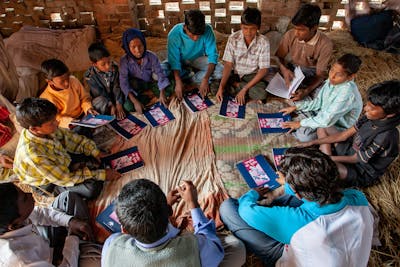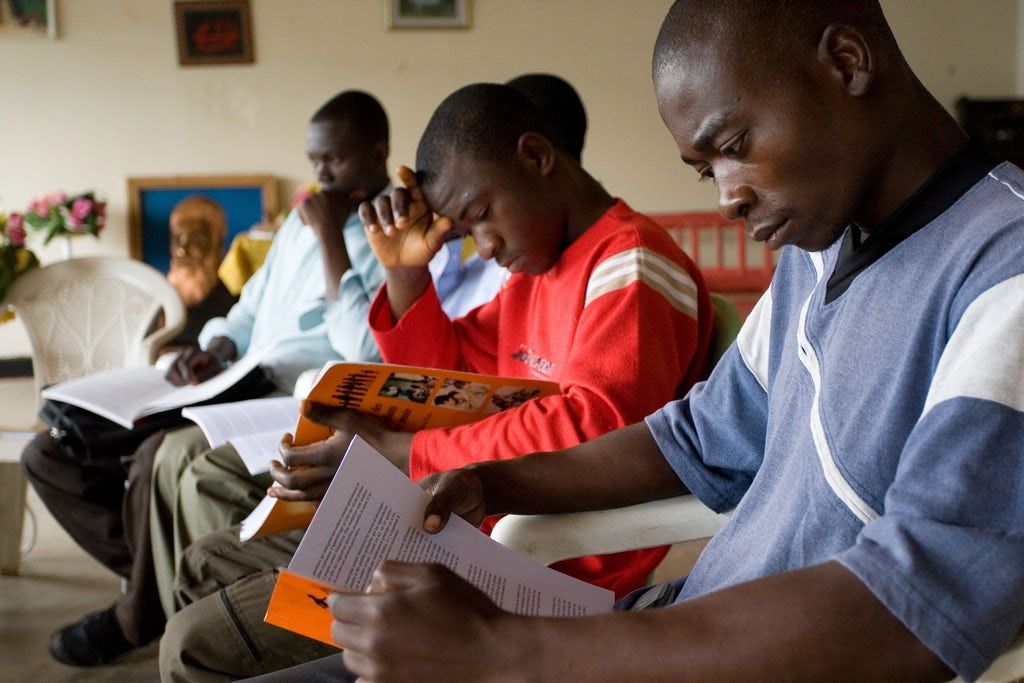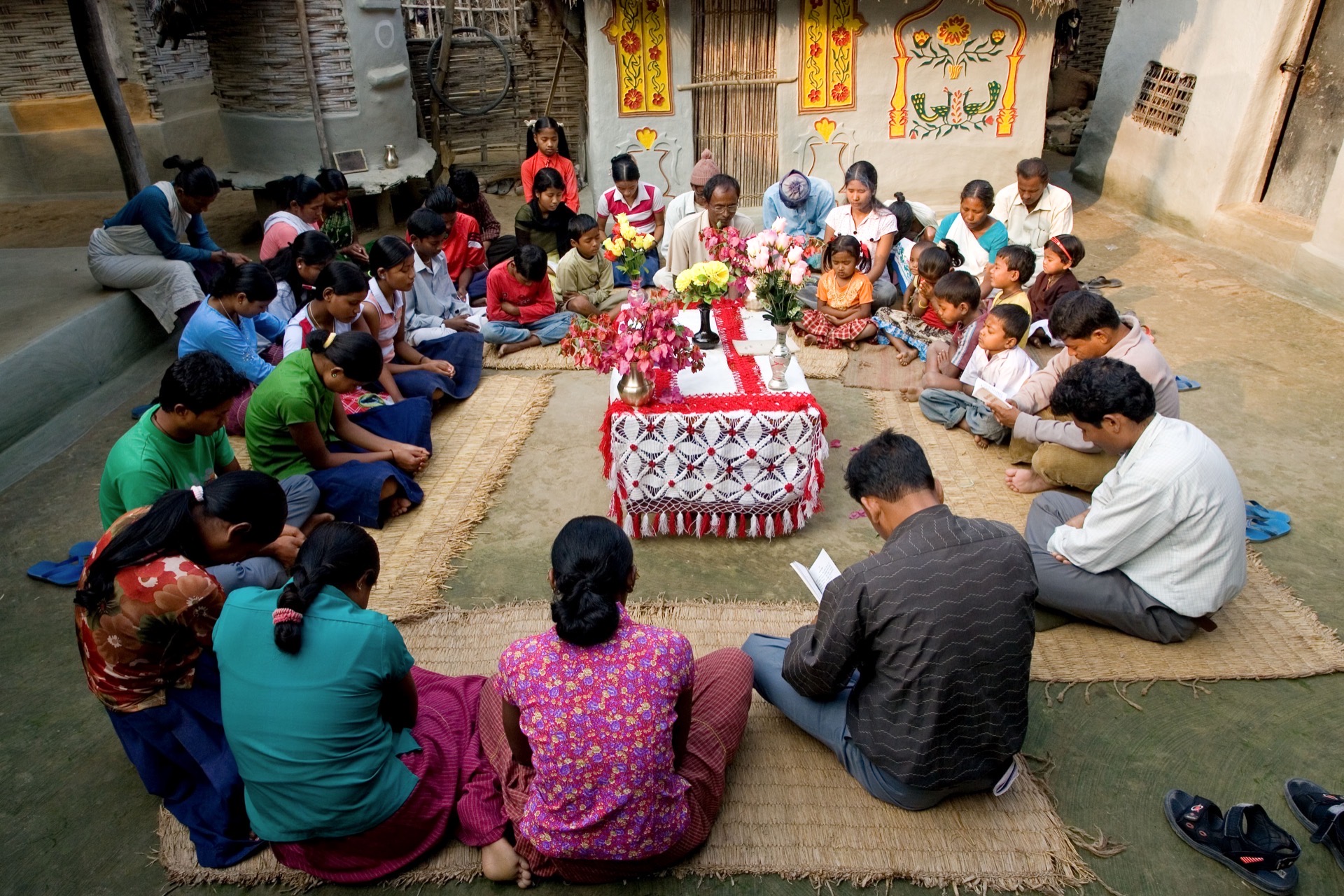
Spiritual and Moral Education for Children
Bahá’ís see the young as the most precious treasure a community can possess. In them are the promise and guarantee of the future. Yet, in order for this promise to be realised, children need to receive spiritual nourishment. Through classes conducted by older siblings and the mothers in several villages and neighborhoods, children are nurtured in environments of love and understanding. The parents, the entire community and the institutions are involved in an ongoing discourse on their roles and responsibilities in raising the children. Great emphasis is placed on the development of spiritual qualities like truthfulness, humility and kindness, and on those habits and patterns of conduct that constitute the essential attributes of a spiritual being.

Junior Youth Spiritual Empowerment Program
Falling between the ages of 12 and 15 and representing a transition from childhood to youth, young adolescents—referred to as “junior youth”—experience rapid physical, intellectual, and emotional changes. A new level of awareness fosters in them an increased interest in profound questions and in their talents and abilities. In several communities in the country, junior youth meet weekly in small groups led by older youth to discuss profound ideas to form a strong moral identity. They study a series of materials and engage in group-building activities like arts, sports and community service projects to develop language skills, mathematical capabilities, and learn to investigate reality in a scientific manner.

Study Circles
A study circle comprises a group of youth and adults who meet regularly to reflect on a set of materials, grounded in the Bahá’í writings, that express the spiritual insights and the knowledge gained in the process of translating Bahá’u’lláh’s teachings into reality. Participants acquire knowledge, skills, and attitudes to enable them serve their communities. They come to see themselves as equals walking a path of service as they arise to educate the younger members of the community, invite friends and neighbors for regular prayer and worship in their homes, and engage in consultation on issues of importance to the community.

Devotional Gatherings
Acts of devotion are inherent to religious life. Through them, individuals and communities continually reinforce the unique bond that exists between God and humanity. This bond vitalizes the relationships that sustain society—between individuals and among the various elements of the community and its institutions. In diverse settings, Bahá’ís and their friends and families unite with one another in gatherings referred to as Devotional Meetings for prayer. There are no rituals; no one individual has any special role. Meetings consist largely of reading prayers and passages from the Bahá’í sacred texts in an informal yet respectful atmosphere. A spirit of communal worship is generated by these simple gatherings, and this spirit begins to permeate the community’s collective endeavours. Devotional meetings spring up naturally in a community where a conversation about the spiritual dimension of human existence is growing. Today, hundreds of families hold regular devotional meetings in localities across the country—in both urban and suburban neighbourhoods, and villages alike.

Social Action
Bahá’í communities regard social and economic development as an expression of faith in action. These efforts arise naturally as individuals and groups, inspired by spiritual principles, strive to improve the well-being of their societies. In various parts of the country, Bahá’ís and their friends are engaged in initiatives such as literacy classes, health awareness campaigns, environmental conservation, and projects that promote equality between women and men. These activities, however small, help build the capacity of the community to address its own needs while fostering unity, cooperation, and a spirit of service. These efforts, carried out in a spirit of learning and service, are seen as part of the process of applying Bahá’u’lláh’s teachings to the life of society, demonstrating that spiritual principles can find practical expression in the advancement of civilization.

Service Projects
Service to humanity is a natural expression of faith and a vital element in the life of Bahá’í communities. Across the country, youth and adults arise to initiate and participate in various service projects—such as community clean-ups, tutoring younger children, planting trees, visiting the sick and elderly, and organizing educational or health awareness campaigns. These simple yet meaningful acts strengthen bonds of friendship and collective purpose. As these efforts grow, they often give rise to more structured social and economic development initiatives, including literacy classes, environmental conservation programs, and projects that promote gender equality and community well-being. All such endeavours, carried out in a spirit of learning, reflect the community’s aspiration to apply Bahá’u’lláh’s teachings in building a prosperous and spiritually vibrant society.